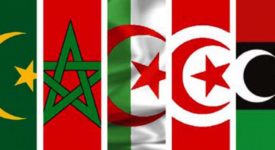The bilateral talks on the future of Western Sahara that took place last week between the UN Secretary’s personal envoy for the Sahara, Horst Koehler, and a Moroccan delegation led by Moroccan Foreign Minister Nasser Bourita who described the discussions as having been conducted “in an atmosphere of serenity and the debates [being] rich and fruitful”. He also said that the talks were serious and marked by “mutual respect”, adding that “this is neither a negotiation process nor a negotiation, but a meeting to discuss the developments of the Moroccan Sahara issue”.
Last week’s meetings were used to take stock of the historical background and developments in the dispute over Western Sahara. The Lisbon meeting also served as a platform to discuss the situation in the Maghreb in general with an UN envoy. Both sides also highlighted the efforts by Morocco to implement a regional development model and roll out the structures by advanced regionalization. The Moroccan delegation also outlined the details of the Morocco-proposed autonomy initiative, including its legal bases, the overall context and its rich content.
The Moroccan approach to the latent conflict is guided by four established principles and terms of reference outlined by King Mohammed VI in his speech in November 2017, on which the Moroccan position on Western Sahara must based for the process to be continued. One of these guidelines is that any settlement of the dispute over Western Sahara must be conceived within the framework of Morocco’s full sovereignty, territorial integrity and national unity. Another important guideline is the need to include all the stakeholders in this dispute in the whole peace-making process, which should at the same time be overseen by the United Nations without the intervention of any other regional or international organization.
The United Nations has been engaged in the peace-making process to the conflict over Western Sahara for a long time. The UN’s Security Council generally emphasizes the importance of the commitment of Morocco and the Polisario, the parties to the conflict, to continue the process of negotiations while also encouraging the neighboring countries, Algeria and Mauritania, to make important contributions to this process.







